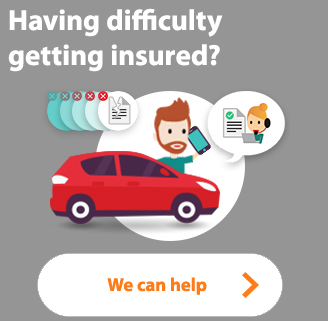Top 5 topics poorly understood by policyholders
Consumers sometimes have trouble fully grasping auto insurance. Insurers and brokers’ roles are critical in helping policyholders when they shop for insurance or make a claim.
Here are some of the least understood topics by policyholders and information to help you guide them as they ask questions.
1. Do you have to file a claim for a car accident involving minor damage?
Whether or not to make a claim is entirely up to the policyholder. However, auto insurance policies require the policyholder to report an accident, even if they have no intention to file a claim. Information can be found in the Reporting a Loss and Submitting a Claim section on page 20 of the Quebec Automobile Insurance Policy Form.
If your policyholders want more information, you can refer them to the article Report and claim: two very different actions on infoassurance.ca.
2. Are you covered when you’re involved in an accident with a car you don’t own?
This is a common question, especially with car sharing becoming more popular.
If the driver of a third party’s vehicle is not liable for the accident, the vehicle owner’s insurance will cover the damage.
If the policyholder is liable for the accident, the loss occurrence may also be covered:
- By the vehicle owner’s insurance policy, as long as the owner has the coverage under their policy.
- By the at-fault driver’s auto insurance policy, if they have one and have Endorsement 27, which is meant to cover damage to a vehicle not owned by the driver.
In both cases, the accident must have occurred in Quebec and involved two vehicles whose owners are identified.
Note that regardless of which insurer pays for the damages, the accident will be added to the driving record of the policyholder who was at the wheel at the time of the accident.
If your consumers want more information, you can refer them to the article Endorsement 27: coverage for damage to vehicles you do not own.
3. Can you appeal an insurer’s decision to declare your vehicle a total loss?
The process starts with an automobile damage appraiser who will assess the damage and estimate the cost of repairing the vehicle, considering the vehicle’s value at the time of the occurrence. The value is based on how old it is, its general condition and its market value.
If the repair costs exceed the vehicle’s value, it will generally be declared a total loss. Sometimes a vehicle is declared a total loss even if the damage estimate is lower than the vehicle’s value (for example, if the damage could affect the vehicle’s safety). Experience shows that for some damage, additional costs are often added to the repair costs once the work has started.
A policyholder can always talk to and negotiate with their insurer. If they disagree with the value of their vehicle set by their insurer, they can prove their vehicle’s value by providing supporting documentation.
Policyholders can also contact the Insurance Information Centre if they disagree with their insurer’s decision.
For more information, refer your policyholders to the article Total loss vehicle: what you need to know on infoassurance.ca.
4. I had a fender bender, but I don’t intend to make a claim. Should I report it anyway?
By law, motorists must report all motor vehicle accidents, even if the damage is minimal. Articles 2470 and 2471 of the Civil Code of Québec provide that any loss that falls under the coverage must be declared to the insurer.
Even if the policyholder does not make a claim, reporting the fender bender ensures that their version of events will be entered in the Fichier central des sinistres automobiles, not just the version of the other driver involved in the accident.
Share the article Fender bender without any damage: should you report it? with your policyholders if they want more details.
5. Does my liability in a collision affect the compensation I will receive?
The compensation amount you’ll receive does depend on your liability in the accident.
- If you’re at-fault for the collision and your vehicle is damaged, you will only be compensated if you have Collision or All Perils coverage. In addition, you will have to pay the deductible listed in your contract.
- If you are not at fault, your insurer will compensate you, even if you do not have Collision or All Perils coverage. You will not have to pay the deductible.
The article Car accident: How your liability affects your claim provides clear details to policyholders on how insurance works based on established liability.

